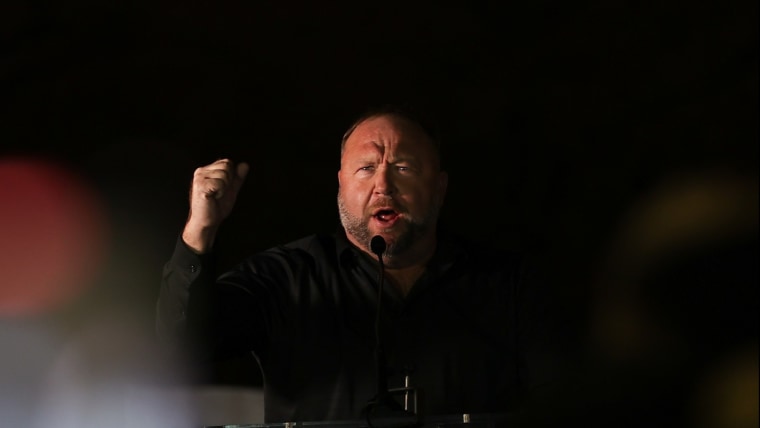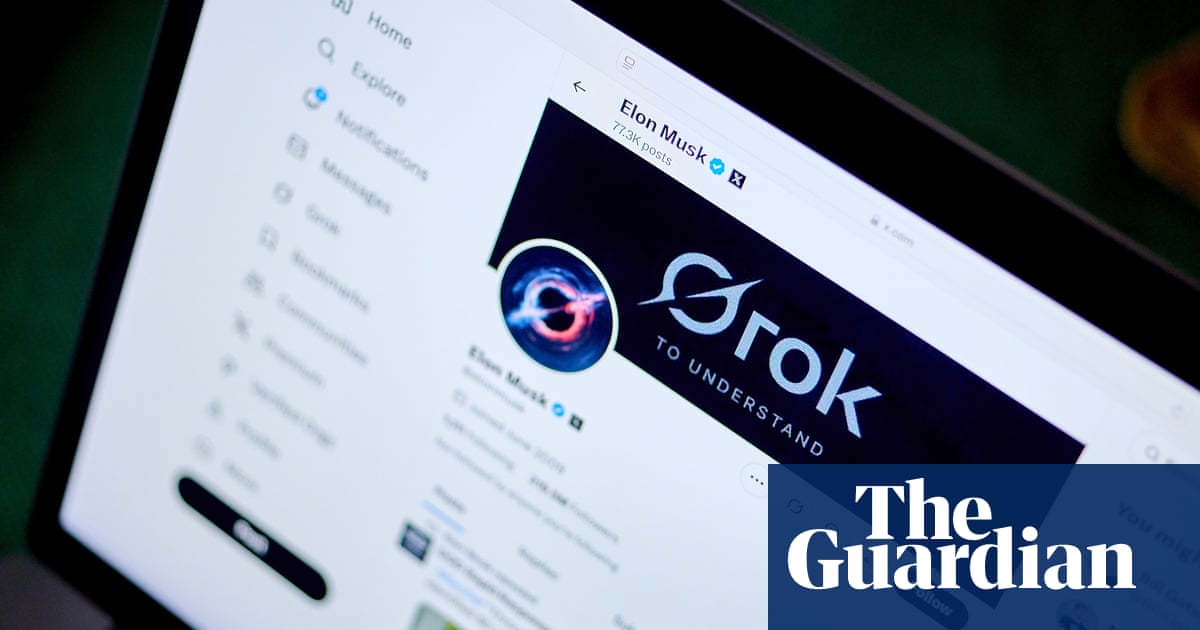How Alex Jones’ conspiracy theories won over my mother
Per his defense, when conspiracy theorist Alex Jones called the Sandy Hook parents crisis actors, “he was looking at the world through dirty glasses.” Maybe so. But he has built a career selling “dirty glasses” to people like my mother, a self-described “truther” who spread misinformation before and after the Sandy Hook shooting.
After a deployment in Desert Storm and through 30 years of odd jobs — including working a cash register and driving a paper route — my mother has found purpose and intellectual stimulation through her fervent following of Jones. Even as he backpedaled on the witness stand during his defamation trial in Texas and a jury ordered him to pay $50 million to the parents of a Sandy Hook victim for the lies he spread about the massacre, even as Jones faces another defamation case in Connecticut, she calls for a Nuremberg 2.0 to try the forces behind Covid-19 vaccines, which Jones’ site claims are a weapon of genocide.
In my earliest memory of her, we sat together on a cheap Berber carpet at her house in Austin, Texas, watching Jones broadcast on public access TV.
In this respect, my mother isn’t unique: Millions of Americans continue to spread Jones’ misinformation even as he is publicly debunked. While it’s tempting to celebrate Jones’ being held accountable, we can’t forget the outsize place he continues to hold in the lives of millions like my mother.
In my earliest memory of her, we sat together on a cheap Berber carpet at her house in Austin, Texas, watching Jones broadcast on public access TV. The custody agreement she signed with my dad mandated I visit her for three weeks during the summer of 1995. I’d just finished kindergarten.
Jones had gotten his start by predicting a police state takeover after the FBI’s siege of the Branch Davidian compound in Waco, Texas, two years earlier. I remember the segment was about police militarization. When the Austin Police Department announced the retirement of its classic powder-blue-and-white cruiser paint scheme without unveiling the new designs, Jones’ stories of police secrecy and militarization wrote themselves.
That night, I was afraid. But behind my fear was a sense of pride, a commitment: If I didn’t want to be a sheep, I had to open my eyes to the New World Order. A new paint job on a police cruiser or a military training exercise were could-be clues into the Stasi police state’s grand plan. In the end, the cruisers were painted white with blue and gold trim, and I never saw a police officer in Austin with an AR-15. But by the time I realized Jones was wrong years later, another catastrophe was looming.
Four years had passed and I was living with my mother during the school year for the first time. We were at a stoplight in her 1971 Volkswagen van when an ad interrupting “The Alex Jones Radio Show” warned: “Time is getting shorter until Y2K. … Now is the time to stock up on emergency supplies and a whole food reserve.”
When Jones’ predictions of a government takeover via Y2K intensified, my mother broke the lease on her apartment to move us into a small cabin in the country.
Jones’ influence over my mother in the last months of 1999 is hard to overstate. She took to calling grocery store trips “supply missions.” We pushed one buggy each through H-E-B until they were filled with canned food, toilet paper and industrial packs of Q-Tips. I knew to wander off when she asked a teenage grocery store worker for help finding toothpaste without fluoride. I knew I couldn’t bear to see his polite reaction when she whispered, “They want to make us easier to control.”
When Jones’ predictions of a government takeover via Y2K intensified, my mother broke the lease on her apartment to move us into a small cabin in the country. We stacked our “supplies” in half-boxes in the middle of the cabin’s single room, between the kitchenette and the bunk bed where I slept.
The night of New Year’s Eve, we sat around a campfire with a clear view of Austin’s downtown, and I didn’t plan to move. I wanted to see it for myself — the moment all the lights of the city would go dark.
Jones’ voice barreled through a battery-operated radio: “A Pennsylvania nuclear plant has been shut down.” I caught myself bouncing, giddy in the camp chair. Through the campfire smoke, I saw my mother. Her hair was pulled back in a bandanna. “Military are highly visible now,“ the broadcast continued. “Yes, ladies and gentlemen, there are trains of military equipment moving into Austin.“
As we listened, I asked, “What will the military do if the lights go out from the Y2K bug?” Without turning her head to look at me, she said: “Whatever they’re told to do. It’s the government we’re worried about.” I was worried, but not about the government. I prayed that Jones’ predictions would come true because I’d have to confront the seedlings of doubt I had about my mother’s decisions if they didn’t. To believe in her, I needed to see tanks in the streets.
When midnight came and tanks didn’t, any blind trust I had in my mother evaporated. When school let out, I moved back to West Virginia and spent the rest of my school-age years between my parents’ places. By high school, I laughed with friends as we flipped through the “Bloodlines of the Illuminati” book my mother kept in her living room. She was kooky and harmless, we thought. The ideas were a joke.
But her beliefs had become threatening by the time of the massacre at Sandy Hook Elementary School in 2012. We were no longer laughing. When I found out about the shooting, I was 22 and in my first semester as a high school math teacher, minutes into a freshman algebra class. My students’ teenage pretense fell away, and through their vulnerability, they seemed closer to elementary schoolers than to the college students they imitated. After a long week, I called my mother. Our estrangement ebbed and flowed then — in this period, we spoke every few months, tiptoeing across a minefield of conversations to avoid. When I said I was glad my school had metal detectors, I shouldn’t have been surprised when she interrupted me to say, “Please, this was not some random attack.”
I could not — cannot — argue with my mother. I stayed silent.
“You’re telling me you believe that kid just bought a gun and shot up a school?” she asked, indignant. “He did all that on his own? This,” she assured me, “CIA is behind this.”
I’ve spent most of my adult life unpacking these moments with my mother through writing. While she knows I write about her, our estrangement is more total now — she doesn’t read my work. In the past I’ve felt angry at her for buying into Jones’ vitriol, but now what I feel most is a sort of envy of her beliefs. The world I see is a chaotic landscape of random beauty and violence. Where a 20-year-old can kill elementary students, where a viral mutation can spawn a global pandemic. I don’t believe in a grand plan.
During the trial in Texas, Jones’ attorney warned that “if you look at the world through dirty glasses, everything you see is dirty.“ Thirty years ago, Alex Jones sold my mother a pair of glasses, a lens into the world. But through them, the world doesn’t look dirty — it is black and white. For her, the glasses reveal order within chaos, a world where no violence is random. When she’s looking through them, she’s on the right side of an epic battle between truth and lies. She, and the millions of other everyday Americans like her, will never take them off.




